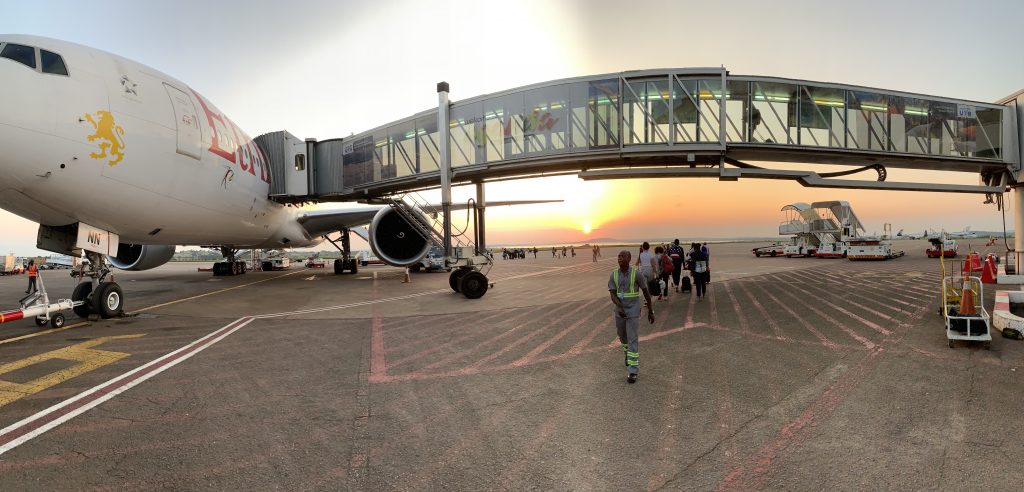Part One in a series of posts on the topic of climate compensation.

I fly a lot, and I’m not talking short puddle jumps either. For the most part, I fly long, transcontinental distances. Stockholm-Phnom Penh. Stockholm-Johannesburg. San Francisco-Sao Paolo. That means my personal carbon footprint is huge. Nothing makes individual carbon footprints balloon like racking up the airline miles.
Other than flying, I try to stay as green as possible. I live with my family of five in a 1,000-square-foot apartment outside of Stockholm, Sweden. I don’t own a car, and I eat vegetarian, except for (what I’m hoping) is sustainably harvested fish. Our family recycles as much as we can. We keep the heating in our apartment down or off whenever possible. Windows are usually not left open. I don’t buy a lot of clothes or other crap.
So when I calculate my carbon footprint without all that flying, it comes out looking pretty good: 4-6 tons of carbon a year, depending on the calculator used, which is a lot less than the average Swedish person and close to the global individual average. But then I add my flights and the number shoots up six-, eight-, or even ten-fold. That Stockholm-Shanghai round-trip flight via Dubai equals the rest of my annual carbon output! Clearly this is not ok. So what to do about it?
I can’t stop flying. The bulk of my flying is for work. I travel to distant locales throughout mostly Asia and Africa to report on environmental issues. I try to seek out meaningful stories that deserve to be told, and I really do believe that my flying is a necessary means to achieving a greater good.
I could argue that the plane will take off whether I’m on it or not, though that’s like saying I don’t need to vote in a public election because my single vote won’t change the outcome. That’s dumb. Just as it’s dumb to dismiss the negative climate impact of air travel on the basis that airline emissions only account for about three percent of global greenhouse emissions (though rising). Just because there are worse climate change offenders, doesn’t make air travel clean.
For me, the bottom line is that flying as a mode of transportation is only going to increase worldwide as more people, especially in developing countries, are able to do it, and no amount of flygskam (flight shaming in Swedish) is going to change that. Air travel is not going away; just consider the fact that the number of Chinese people with passports may double in the next two years. Besides, if you live in a rich country where everyone has been flying for decades, you really have no right to tell people in other parts of the world that they can’t do the same.
The goal, then, isn’t to stop flying. It’s to make flying more environmentally friendly with the aim of ultimately having airplanes that don’t emit greenhouse gases. Airplane fuel efficiency must be improved, while the infrastructure to replace jetfuel with biofuel is developed. As consumers, we should patronize airlines that are serious about climate change (they exist) and stay away from those that are not.
In the meantime, we should offset the damage our flying does by climate compensating. Some people criticize this practice as a way for rich people to pay for the privilege of damaging the climate. Major doubts exist about the efficacy of many of these programs. For me, that’s not a reason to not do it. It just means it’s important to choose the programs that work. The benefits of climate compensation could be very important. It’s not an offset measure as much as it is a productive fine that can contribute positively in ways to change energy practices.
My climate compensating in the past has been inconsistent and I have no excuse for not doing it on a regular basis. In the past year, I have probably flown more miles than I ever have before. I’ve tallied up those miles and in my next post on this subject, I will research compensation projects and choose where to pay my dues.

